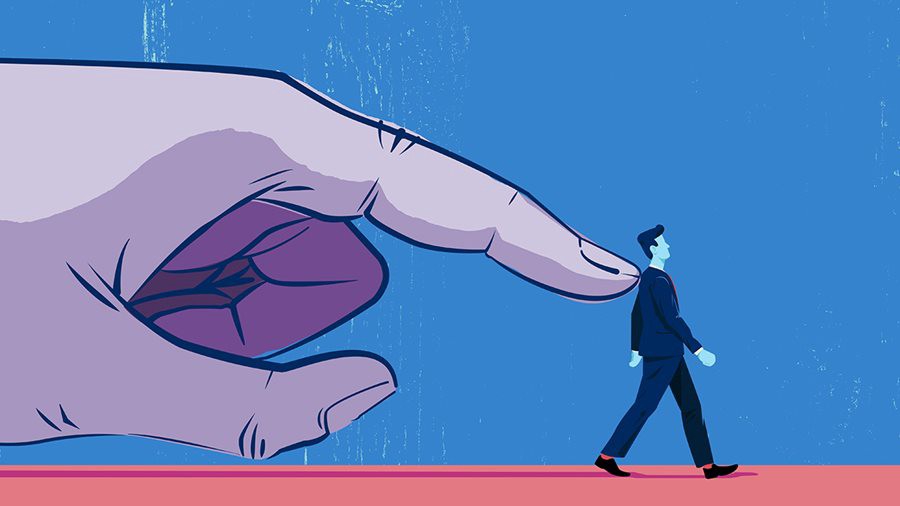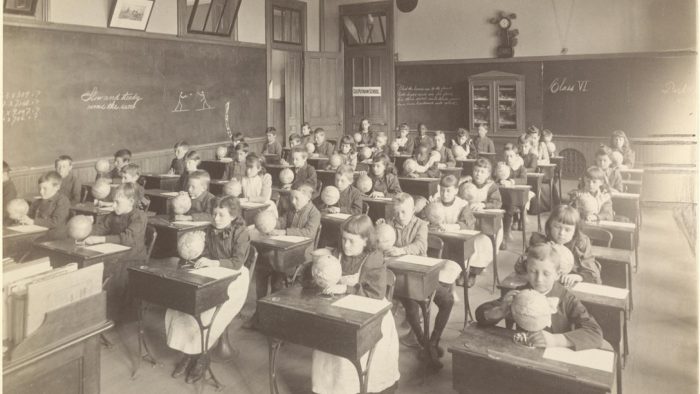The way out is through accountability.
How to Save Higher Education

Practical solutions for one of the country's biggest problems.
So you wanna reform higher education? Take a number and get in line. Get your numbers and (hot) take a line. Everyone else is doing it these days. This is because it can no longer be denied that something has gone awry. As Gallup reported last year, trust in higher education, which has traditionally remained high in America—surpassing organized religion and the three branches of the federal government—has finally slipped under 50%. A large majority of Americans think that higher education is headed in the wrong direction, as the Pew Research Center reported last year.
Jacob Howland knows that reform of our higher educational institutions is needed, but he reminds us that what has happened at his University of Tulsa is a good example of how not to go about it. The story of Tulsa is telling, both in itself and on account of Howland’s eloquent writings on the subject; its lessons are important to understand since the American Right is repeatedly tempted to “corporatize” education.
Problem is, in order to run a business you have to know something about the nature of the, er, business in question—and Howland and many others would say, quite rightly, that most administrators and would-be corporatizers today do not seem to know what the hell education is or should be. Or, alternatively, they have all-too-clear ideas that do not conform well with reality.
Whether you are inclined to agree or disagree with the previous paragraphs, after you read Howland’s essay you have my permission to leave our pages and read John Seery’s fiery critique of college presidents sometime—it is one of the best accounts of the demise of the small liberal arts college in print. I only wish we had commissioned it here.
Back to our feature: John Peterson (no relation) asks a similar question about what education is, arguing that the problem we face today is often not so much indoctrination as it is ignorance.
No one denies that a lot of what now passes for the humanities is a waste of time, or that we need credentials that lead to jobs. But if you jettison true liberal arts education, at best you will produce a bunch of folks who have technical expertise and decent salaries but won’t necessarily be able to think for themselves. In fact, they will likely bend to every tyrannical and destructive whim of the Social Justice Warriors.
Don’t believe him? Might want to check out what Silicon Valley has become…
As Peterson points out, if we truly educated students in their K-12 years we would immunize them from the current idiocies of higher education. We fool ourselves when we place more importance on college years, when there is plenty of evidence that little is learned then, as opposed to the mountain of evidence that suggests K-12 education forms people for life.
I think a large part of the problem is the enormity of the task, given the rampant failure of the system, which is exhausting to contemplate. As Peterson suggests, however, there are no shortcuts—we will have to build anew, and create the system that should exist ourselves. He’s putting his actions where his words are: he’s part of the small renaissance now occurring in K-12 classical or liberal arts education, teaching the teachers at the University of Dallas.
Andy Smarick makes a vital argument that sits adjacent to Peterson’s: a prejudice for higher education is built into the epistemology of policy makers and our ruling political class, even if there is plenty of evidence that this prejudice is not justified by reality and is in many respects irrational.
So what the hell ought we do? The American Mind will be exploring this question for years to come. But in this feature we present a deceptively prosaic answer.
Calling a philosopher “thoughtful” is much like when an NFL announcer praises the “athleticism” of a professional athlete, but Rob Koons has indeed thought for some time about how to salvage the system, and his answer may surprise you: testing, and lots of it.
Make no mistake: this isn’t No Child Left Behind or Common Core—far from it. Koons argues for exams on the actual stuff students are supposed to learn. His idea seems simple: transparency, and rough-and-ready data that is nevertheless accurate enough to hold the educational system accountable. One can hear the screams of the assessors and administrators in the current regime already.
I spent a few years in assessment and evaluation of educational programs intended to teach K-12 teachers, testing thousands of students and their teachers. They can’t stand the mere thought of testing “content,” i.e., the actual stuff the teachers are supposed to teach and the students are supposed to learn. Never mind being ranked based on such a thing. The very idea of something like what Koons proposes here, really and truly set in place, with rewards and punishments attached, scares the crap out of them.
At root, the problem of education is indeed a matter of “content,” not procedure. In a technocratic age, it is often more comfortable for the Right as well as the Left to avoid the “what it is” question in favor of some form of policy proceduralism. But the structure or form of education will always ultimately be determined by its purpose.
We need more honest debate about that.
As always, contact us if you would like to contribute or respond to The American Mind, or point us to someone who should.
The American Mind presents a range of perspectives. Views are writers’ own and do not necessarily represent those of The Claremont Institute.
The American Mind is a publication of the Claremont Institute, a non-profit 501(c)(3) organization, dedicated to restoring the principles of the American Founding to their rightful, preeminent authority in our national life. Interested in supporting our work? Gifts to the Claremont Institute are tax-deductible.
The federal government is poorly positioned to solve our national problems.
K-12 is the key to reforming education in America.
The University of Tulsa is a case study in the depredations of disruptive innovation in higher education.




